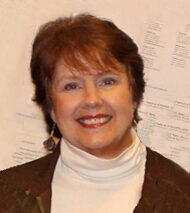
Nancy Huntting, Aesthetic Realism consultant, writes:
America’s greatest hope, humanity’s greatest hope, is to be found in the new issue of TRO, titled “For All of Us: The Biggest Question.” In all that we do, is there an underlying ethical question we’re trying to answer—or to evade? And is there an answer to that question—logical, thrilling, learnable—to be found in sincere poetic lines, such as those of Whitman and Tennyson, and in all true art? Yes! The knowledge most in behalf of our happiness and well-being is in “For All of Us: The Biggest Question,” the latest issue of The Right of Aesthetic Realism to Be Known.
The commentary by Ellen Reiss begins:
Dear Unknown Friends:
Here is the fifth and final installment of the lecture Hamlet and Questions, which Eli Siegel gave in 1976. In this work of magnificent literary criticism and human kindness, Mr. Siegel speaks about questions that are asked in various passages of poetry, including early lines of Hamlet. And in my commentaries I’ve written a little about the beauty of Aesthetic Realism itself in its asking of questions.
Now I’m going to quote and comment, some, on a question asked early in the history of Aesthetic Realism. It is the most important question for every individual person. Mr. Siegel asked it in The Aesthetic Method in Self-Conflict, a work that would become chapter 3 of his Self and World but which had first been published by itself in 1946. On its opening page, he describes in a question the “duality facing every human being…: How is he to be entirely himself, and yet be fair to that world which he does not see as himself?”
That question, in its beauty and dignity, is raging in people’s lives. Sometimes the raging is quiet, sometimes flaring. If asked, nearly everyone would say being fair to what’s not themselves is important. Some might even mean it a bit. But the world we don’t see as ourselves consists of people, facts, objects, history, knowledge, ideas, people again, people close to us and far away, people we see as different from ourselves. And even persons who have wanted to go after greater justice in various fields have rarely felt that being just was the same as one’s own glory, one’s own importance, one’s own being (as Mr. Siegel writes) entirely oneself. That is why a husband and wife, say, can quarrel in a way that makes them deeply confused and ashamed: because with all their affection, each doesn’t see being fair to the other as the same as being and protecting and expressing one’s own self.
There Is Art
Can that question Mr. Siegel presented eight decades ago be really answered? Can justice to the world-not-us and our own self-valuing be really the same reveled-in thing? Aesthetic Realism not only asks the question but answers it….Read more